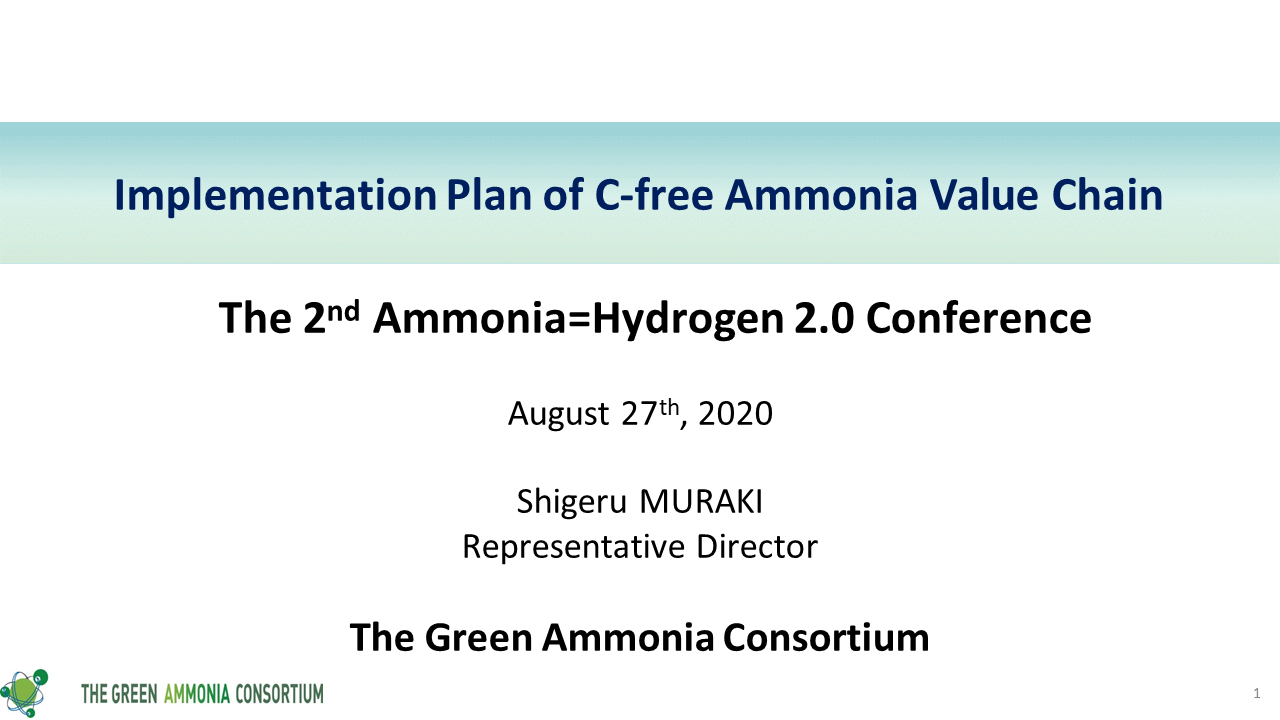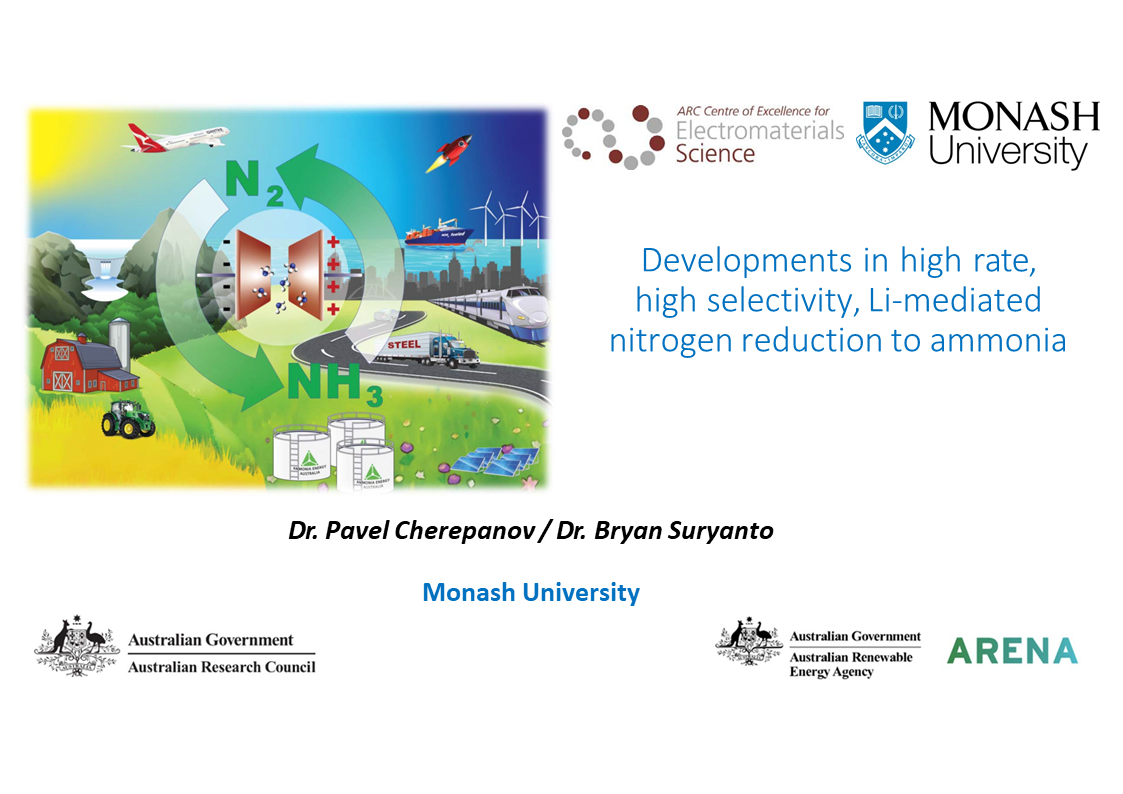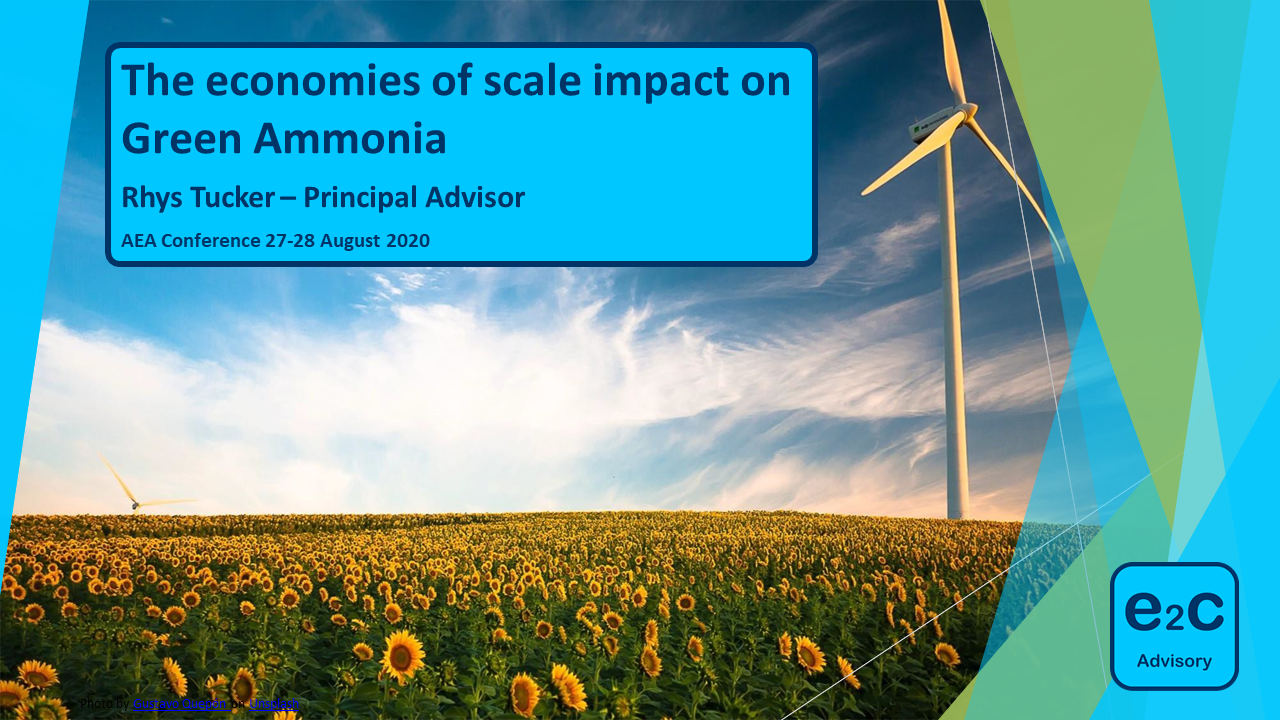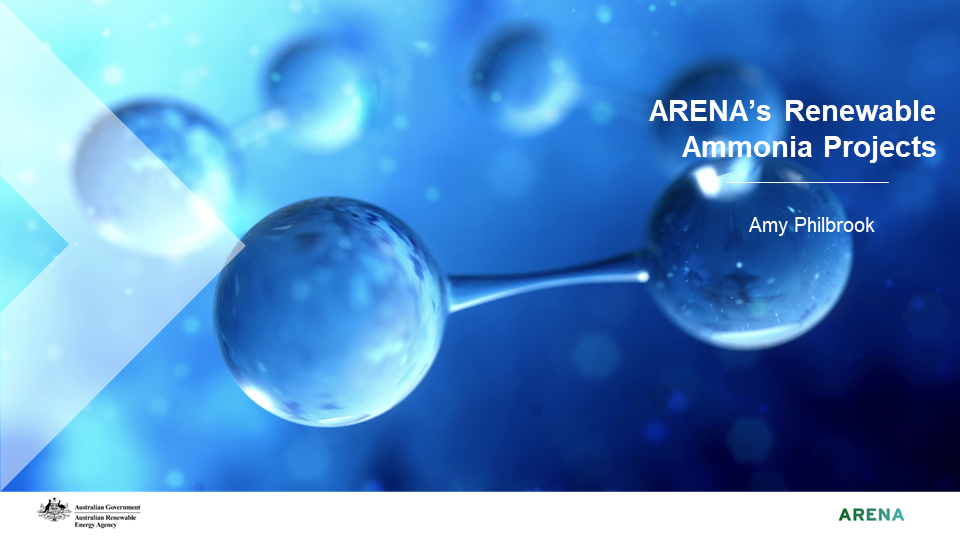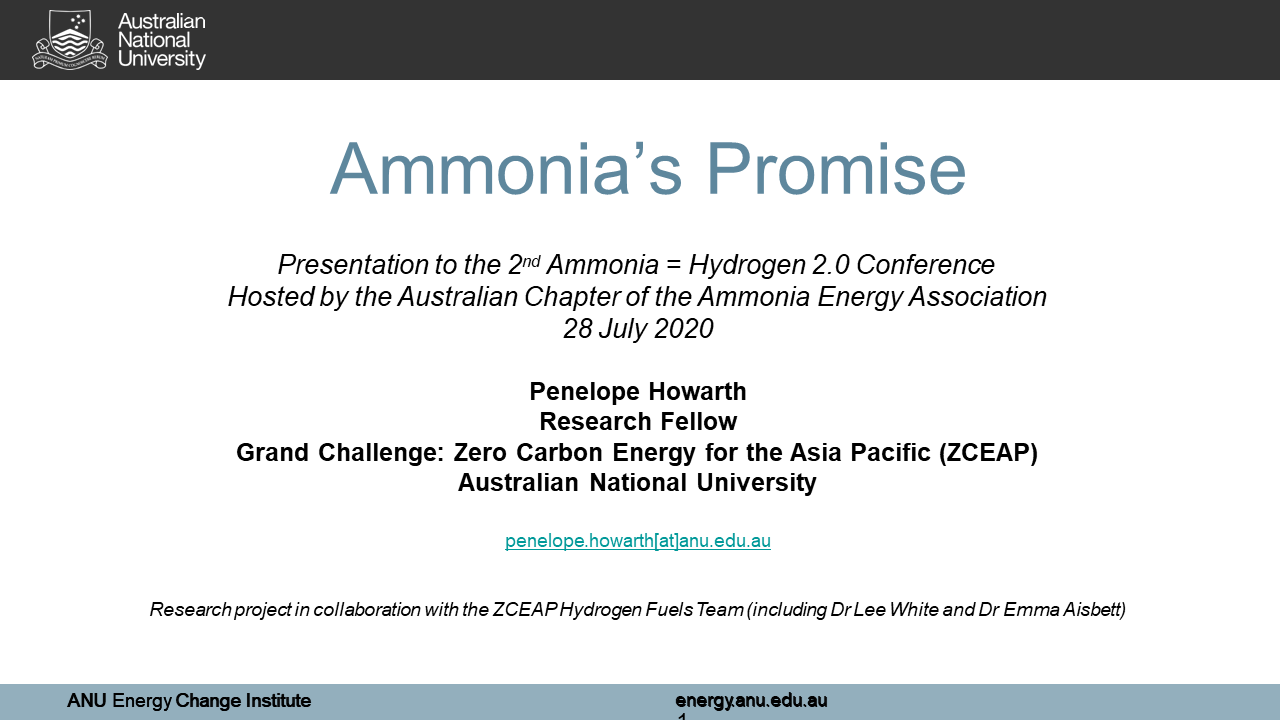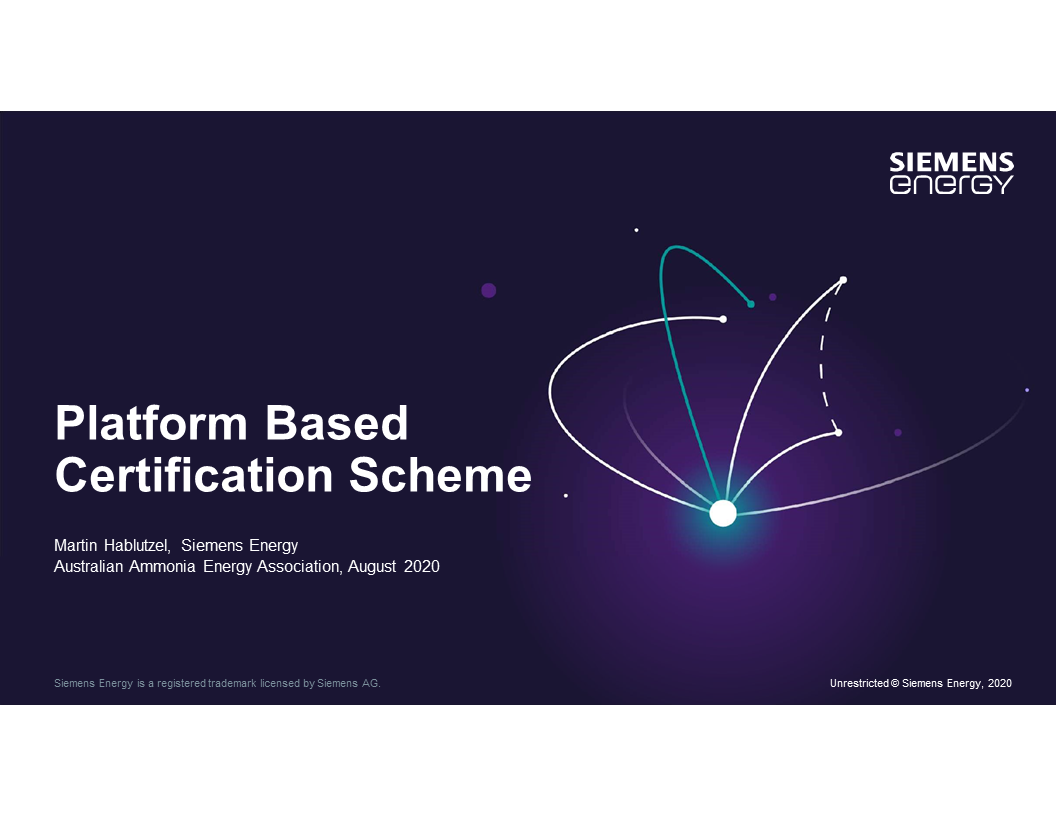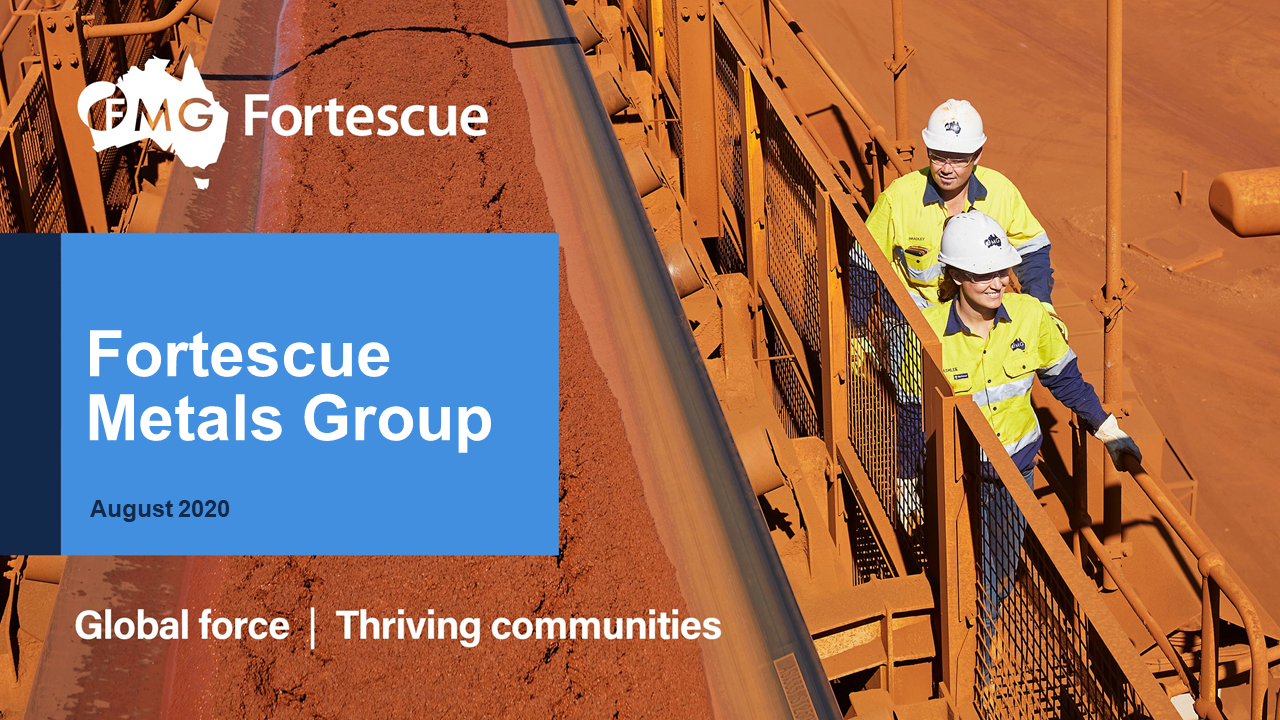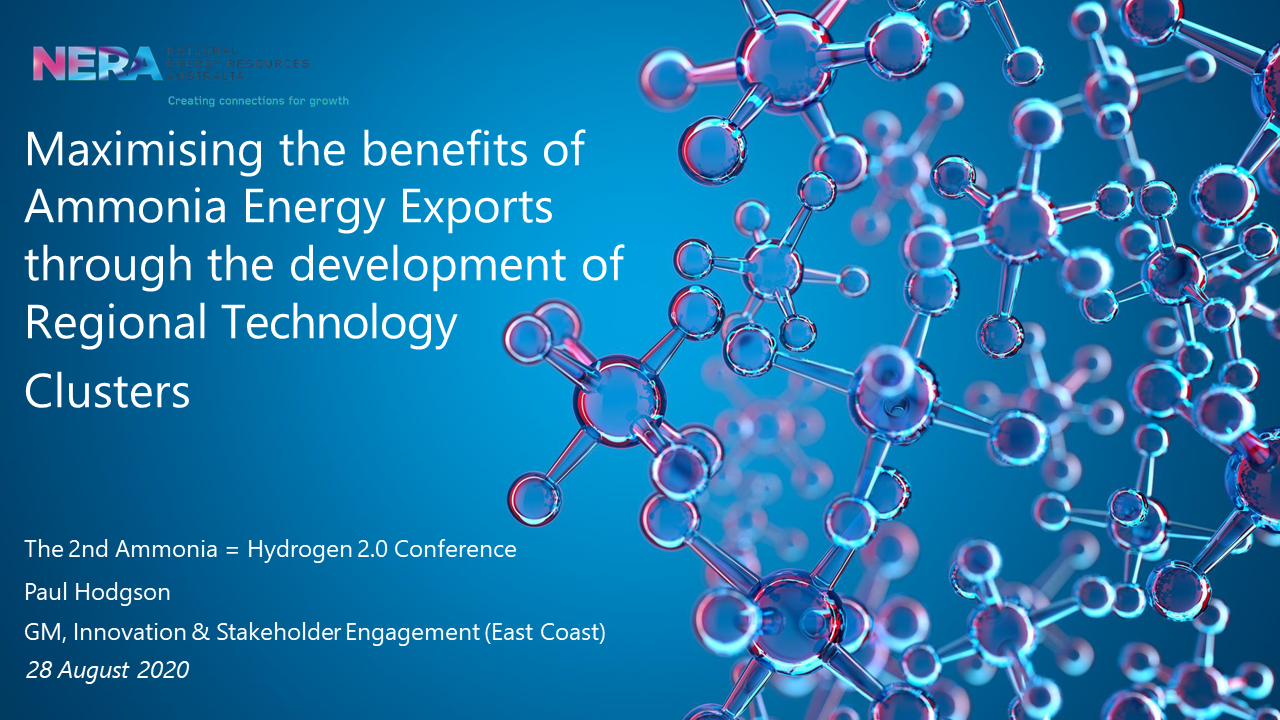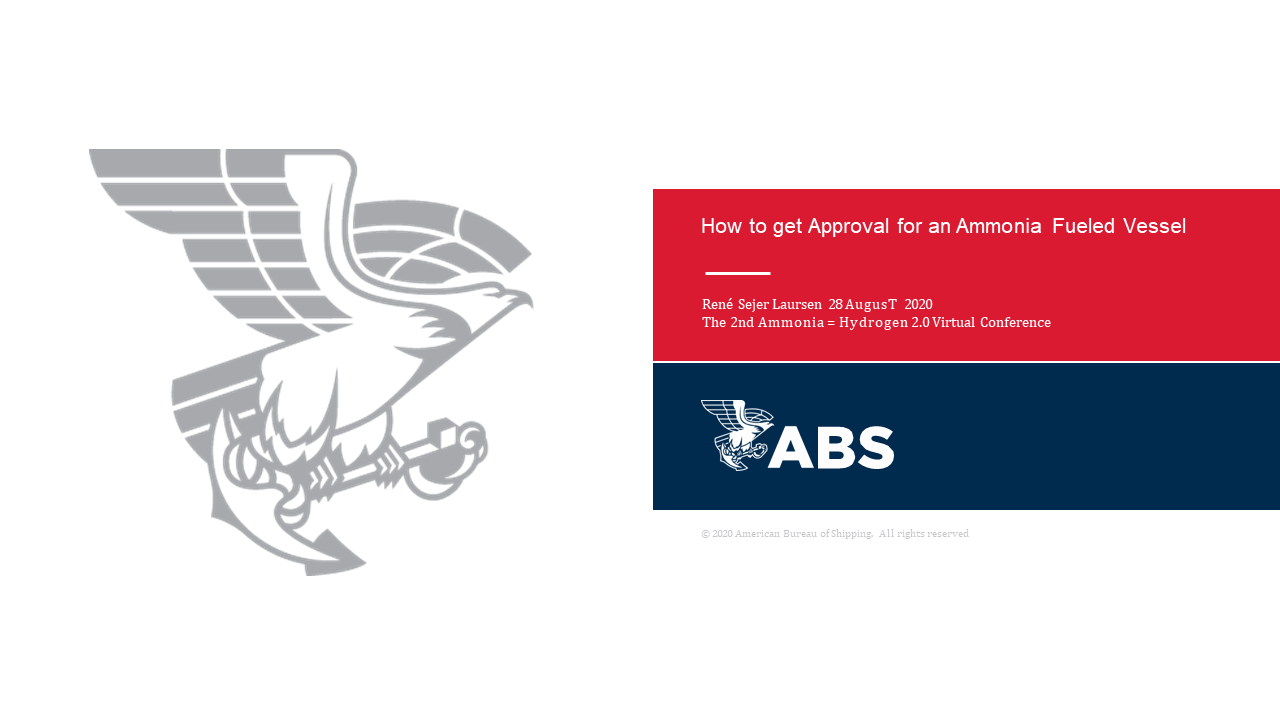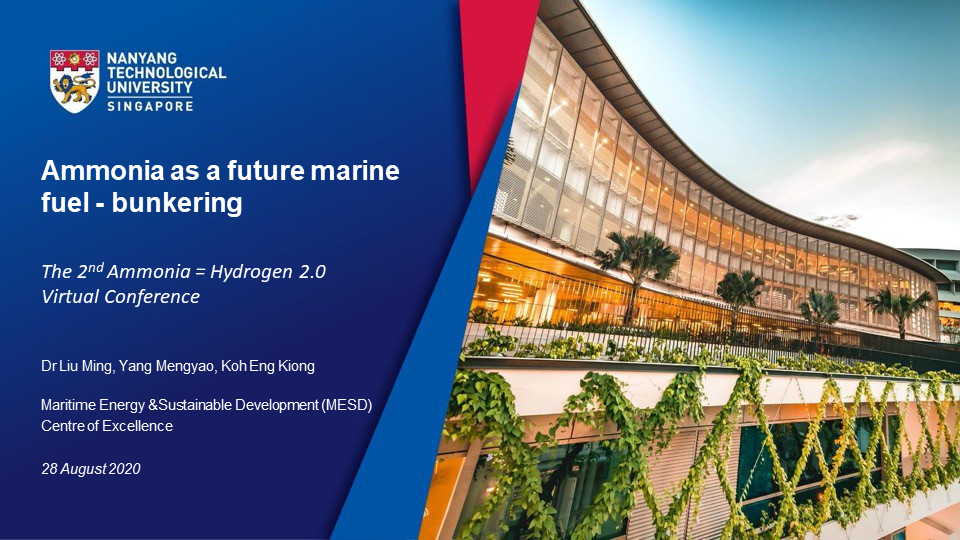Ammonia Energy Conference 2020 – Australia
August 27, 2020 August 28, 2020 Virtual (Zoom)
Schedule
Session 1
Thursday, August 27, 2020
Presentation
Implementation Plan of C-free Ammonia Value Chain
We are targeting to start commercial use of Fuel Ammonia from around 2025 for power generation, industrial and maritime markets. There are number of potential supplies of Blue and Green Ammonia from Australia, North America and Middle East, and large potential markets in Japan as well as Asia. First phase of Fuel Ammonia market will be mix combustion in coal power plant with Blue Ammonia supply. Extensive market will be created, and large scale Blue and Green Ammonia supplies will be implemented. Bilateral collaborations of governments and industries in supply and demand countries are essential to realize Fuel Ammonia Value…
Session 2
Thursday, August 27, 2020
Presentation
Observations on green ammonia production scaleup and the potential for job creation
Green ammonia provides Australia with the opportunity to export our abundant renewable resources. A key benefit to the nation is the jobs created in an expanded ammonia export industry, allowing transition from carbon-based energy to cleaner sources. Drawing on cases study analysis of green ammonia plants scaled from 25 to 2500 tonnes of ammonia per day, the impact of a range of production cost elements is assessed focusing on ammonia production.
Presentation
ARENA's Investments in Renewable Hydrogen and Ammonia
ARENA’s purpose is to improve the competitiveness of renewable energy technologies and increase the supply of renewable energy through innovation that benefits Australian consumers and businesses. By connecting investment, knowledge and people to deliver energy innovation, we are helping to build the foundation of a renewable energy ecosystem in Australia. We provide funding support to help the renewable hydrogen industry overcome barriers to its further development, such as the high cost of producing renewable hydrogen, limited regulatory frameworks for applications such as use in the natural gas network, under-developed end-use markets and insufficient demand to attract investment in projects. ARENA…
Session 3
Thursday, August 27, 2020
Presentation
Platform based Certification Scheme
A robust and internationally recognised certification scheme is critical to facilitate international trade of hydrogen and its carriers (such as ammonia) and other derivatives. There are a number of existing schemes and discussions are under way for further development, often describing the need for a scheme to be transparent, minimal, auditable and future-proof amongst other attributes, all at low cost and with minimum administrative overhead. This presentation proposes to look at a certification scheme from a ‘bottom-up’ perspective by considering possible technical solutions that exist and can be developed to meet the ‘top-down’ expectation.
Session 4
Friday, August 28, 2020
Presentation
How to get approval of an ammonia fuelled vessel
“How to get approval for an ammonia fueled vessel” It is well known that ammonia as a fuel is inherently carbon and sulphur free. Compared to fossil fuels, combustion of ammonia reduces CO2, CO, particulates/soot, unburnt hydrocarbons and sulphur oxides by at least 90%. With ongoing research and development to investigate the modifications needed for existing marine diesel engines to combust ammonia, there is a potential of fast adoption by the maritime industry through new builds and perhaps also through retrofits. Today, there are no prescriptive rules and regulations in place for the use of ammonia as fuel in marine…
Presentation
Ammonia as a future marine fuel - bunkering safety and potential issues
Bunkering is an indispensable operation to supply fuel to ships. Currently in marine industry, ammonia has been a bulk commodity frequently loaded/unloaded from terminal to ship or ship to terminals. The operation is similar to bunkering, the difference being that ammonia is transferred to a dedicated storage tank instead of fuel tank. The future adoption of green ammonia as a marine fuel will need to be developed taking reference of the existing industry practice, of which the bunkering operation is carried out for heavy fuel oil, diesel oil, marine gas oil, lube oil and LNG. There is also a need…
